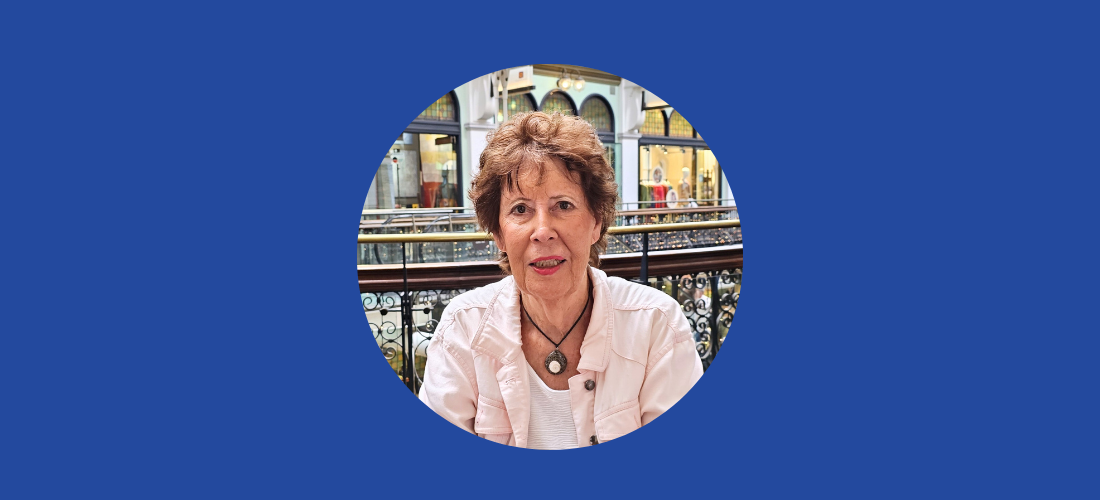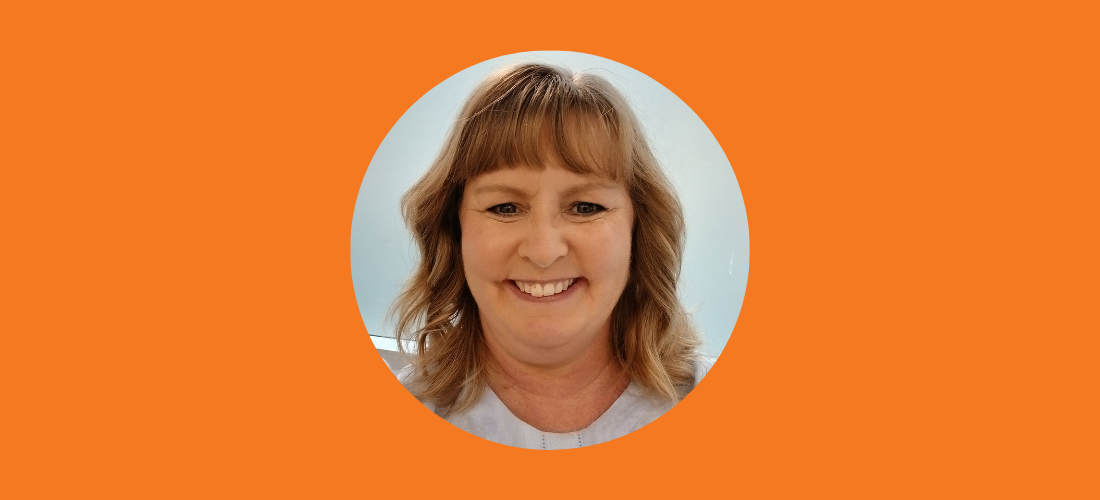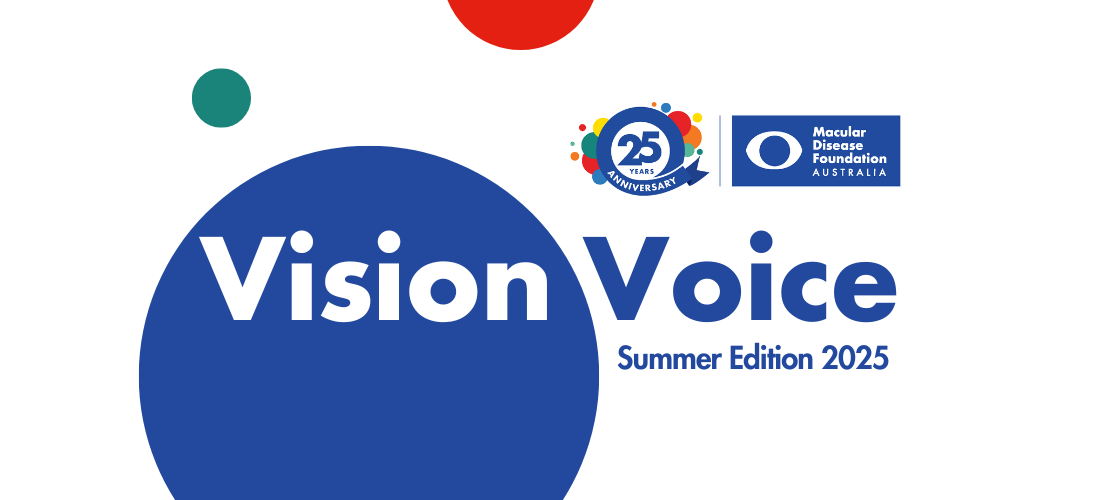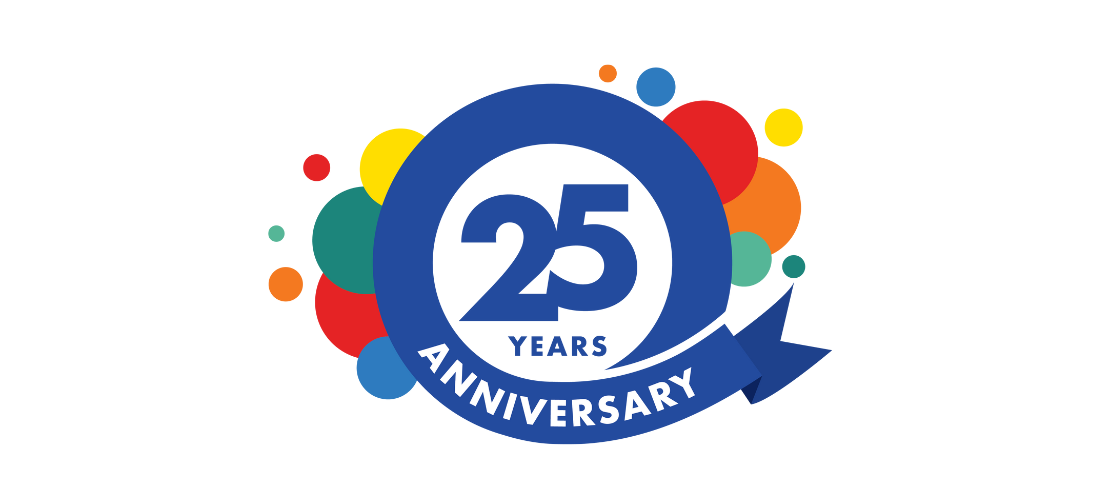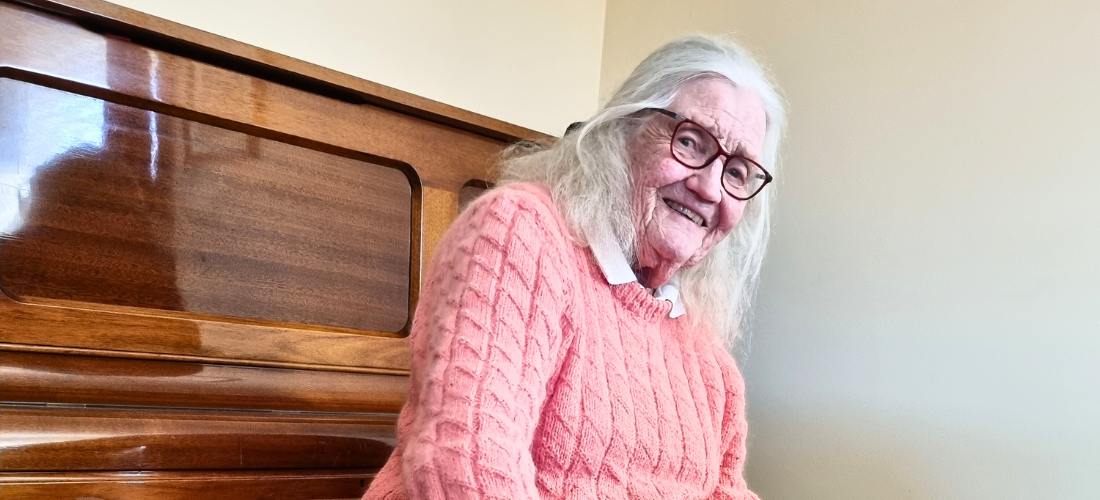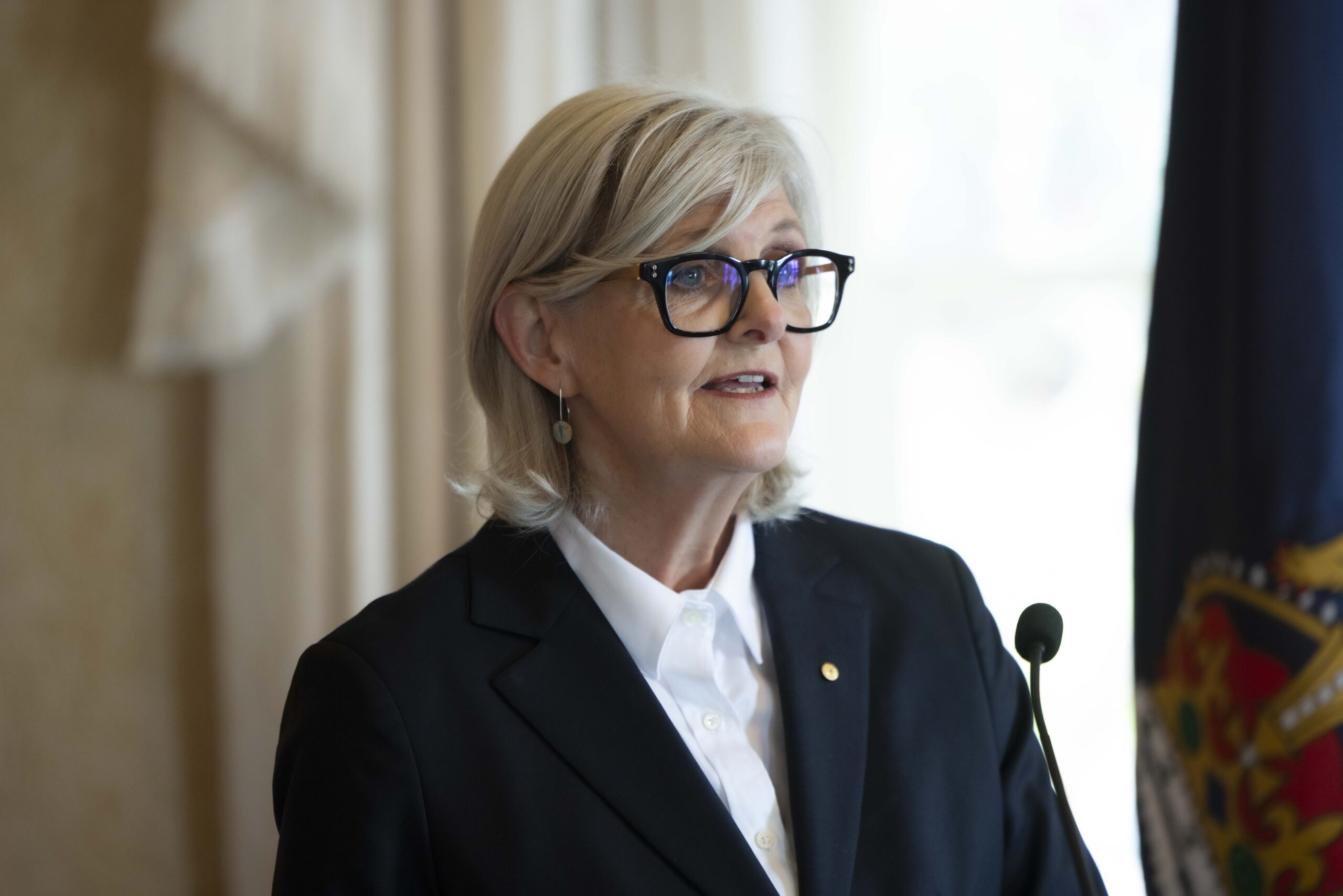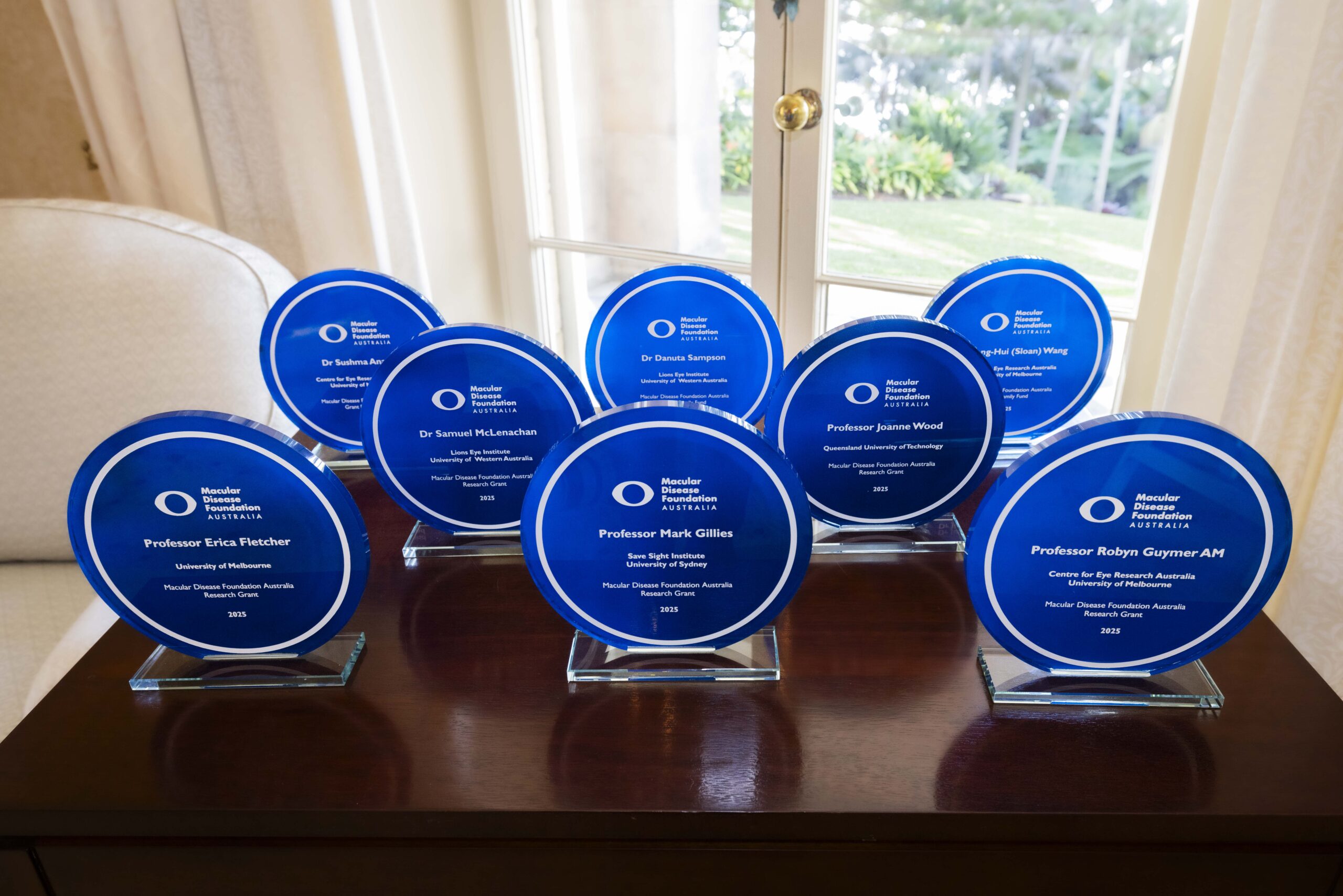Alicia Thompson talks living with Stargardt disease
At 44, Alicia Thompson is a professional businesswoman with a husband, a teenage son, and a love of knitting. Not much different from many women you’d meet on the streets of a busy city, except that Alicia has lost 95 percent of her sight and, since the age of 19, has lived with loss of central vision now making her legally blind.
Alicia has Stargardt’s disease, a hereditary eye condition that affects the macula. Stargardt’s disease causes the cells in the centre of the retina to die, leaving a person with only their peripheral vision. “I was diagnosed in 1990. Up until then, I had perfect 20:20 vision,” said Alicia, who at the time had a job working with Westpac and had just moved in with her boyfriend, who she later married. “I was doing data entry with 100 percent accuracy, and suddenly I started making mistakes, I was missing numbers and I didn’t understand why.
Stargardt’s disease causes the cells in the centre of the retina to die, leaving a person with only their peripheral vision.
“My brother has the same condition, although he was diagnosed much earlier, so when my vision started changing, I had an idea of what was happening.”
Alicia’s vision has progressively deteriorated over the last 25 years.
“My sight is still getting worse – I’ll notice for a day or two that things aren’t the same and then that becomes normal. I don’t really remember what I used to see.” She says the hardest thing about losing her sight was stopping driving when she was 21.
“I had a white 71 Monaro that I still have in the garage and I was driving it everywhere. I still get behind the wheel if we’re in a paddock – at my brother’s I’ll drive a bobcat just to be driving something. I love it. My grandfather was a custom truck builder. I think I’ve got diesel in my blood.”
Without being taught or asked, my son always looks out for me, pointing out gutters, curbs and obstacles.
Also difficult was bringing up a small child. “My husband had to clean and sterilise my son’s bottles because I was unable to see any residue formula. By the time he was a toddler I was unable to read him stories and when it came to going out, I needed him to walk, which of course he really disliked.” Having grown up with a mum who was legally blind, Alicia says her son is extremely attuned to her needs. “Without being taught or asked, my son always looks out for me, pointing out gutters, curbs, and obstacles.”
Technology is everything
Alicia said she loves life and, with the help of technology, manages just like everyone else. “One of my favourite things in the world is my iPhone, which has given me back a lot of the independence I thought I had lost forever. “I can look up train timetables and plan trips using public transport, with my iPhone and iPad I can message people, read books, search the internet, look up recipes. “Magnification too, has changed everything. Using my portable magnifier, I can pretty much see anything I want to. I use it to learn new settings on appliances, to read the mail and to crochet and knit, which I really love to do.
One of my favourite things in the world is my iPhone, which has given me back a lot of the independence
“At work I use a camera with magnification to zoom in on notes presented on the white board although often I arrange to have presentations sent to me prior to meetings so that I can upload them to my laptop. Then when I’m in the meeting I will detach the keyboard so that I can lift the screen to my face to view magnified files. I’m not a naturally organised person but I do find that planning ahead does help. When reading long emails or documents I use a text to speech application.”
Putting people at ease
Recognising faces of colleagues and friends is something Alicia will always grapple with and so she has developed her own strategies for managing what can otherwise be an awkward situation. “I work in a large building with people spread over different floors. Often I will say hello to people incorrectly thinking I know them and often people will say hello to me, but because I can’t see them, I have no idea who they are. To get around this I always let people know I am vision impaired and that I’m not being rude if I don’t recognise or acknowledge them in the corridors.”
I always let people know I am vision impaired and that I’m not being rude if I don’t recognise or acknowledge them in the corridors.
Similarly, in meetings, when introducing herself, Alicia makes a point of letting people know she has a visual impairment. “They need to understand why I might have my head buried in the computer screen, or that even though I appear to be looking at the person behind them, I’m actually using my peripheral vision to see their face. Letting people know this upfront puts them at ease.”
It’s more about finding a different way to do it.
Although fiercely independent and extraordinarily self-sufficient, Alicia admits that having good people around her, both at home and in the office, makes an enormous difference to her quality and enjoyment of life. “You do have to know your limitations. I know there are things I can’t do and I also know I’m really lucky because I have great colleagues, friends and family that I can ask for help. Mostly I work it out for myself. “I may not do things the way sighted people do, but I don’t let that stop me. Different, doesn’t mean it’s wrong. And hard doesn’t mean you can’t. It’s more about finding a different way to do it. It’s something I have to do. If I still want to have a normal life and enjoy the things I do then I have to find other ways to do them.”









